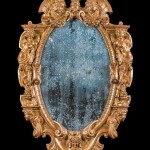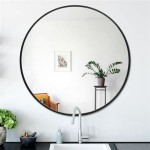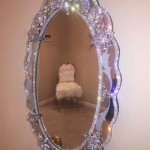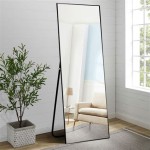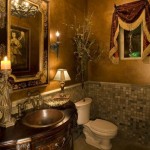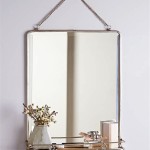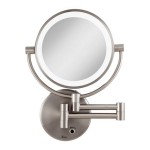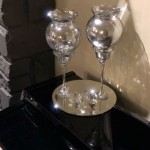How to Make Your Own LED Mirror
Creating a custom LED mirror is a fun and rewarding project that can elevate the look and functionality of any bathroom or vanity space. Here's a comprehensive guide to help you achieve professional results: ### Materials and Tools - Mirror (preferably frameless or with a thin frame) - LED strip lights (with a self-adhesive backing) - Power supply (to match the voltage and wattage of the LED strip) - Scissors or wire cutters - Measuring tape or ruler - Level - Clear silicone adhesive - Optional: Mirror clips (for added stability) ### Step 1: Plan the Layout Measure the mirror and determine the desired placement of the LED strip lights. Decide whether you want to illuminate the perimeter, create a halo effect, or add strips to the back of the mirror for ambient lighting. Sketch out the layout on paper to visualize it before proceeding. ### Step 2: Prepare the Mirror Thoroughly clean the back of the mirror with a glass cleaner to remove any dirt or fingerprints. If the mirror has a frame, carefully remove it to expose the raw edges. Sand any sharp edges for safety. ### Step 3: Install the LED Strip Cut the LED strip to the desired length and peel off the adhesive backing. Align the strip with your planned layout and press it firmly onto the back of the mirror. Ensure that the arrows on the strip indicate the direction of the current flow. ### Step 4: Wire the LED Strip Connect the LED strip to the power supply. Most LED strips have color-coded wires (red for positive, black for negative), so match these colors to the corresponding terminals on the power supply. Secure the connections with electrical tape or wire nuts. ### Step 5: Mount the Power Supply Mount the power supply to a nearby wall or cabinet using screws or adhesive tape. Ensure that it is easily accessible for plugging into an outlet. ### Step 6: Secure the Mirror If the mirror does not have a frame for support, use mirror clips to secure it to the wall or vanity. Place the clips along the edges of the mirror and tighten the screws to prevent it from wobbling. ### Step 7: Apply Silicone Adhesive To enhance the stability and seal the LED strip, apply a thin layer of clear silicone adhesive around the edges of the mirror where the LED strip is installed. Smooth the silicone with your finger or a damp cloth. ### Step 8: Reattach the Frame (Optional) If the mirror had a frame, reattach it once the silicone adhesive has dried. Ensure that the frame fits snugly around the LED strip and mirror. ### Conclusion Congratulations! You have successfully created your own custom LED mirror. By following these steps, you can enjoy the benefits of enhanced lighting and a modern, sleek aesthetic in your bathroom or vanity space. Remember to take proper safety precautions and consult with an electrician if you are not confident with electrical wiring.
How To Make Your Very Own Led Vanity Mirror Broke And Chic

Build Your Own Infinity Mirror
How To Design And Install Led Strip Lighting Behind A Mirror Step By Guide

Diy Vanity Mirror With Lights If A Is On Your Wishlist Then This Post For You Mak
How To Design And Install Led Strip Lighting Behind A Mirror Step By Guide

Whole Custom Backlit Illuminated Led Mirror For Bathroom Make Up China Vanity Made In Com

Bathroom Frameless Custom Cosmetic Make Up Led Mirror In Guangzhou China Wall Made Com

We Have All Kinds Of Led S Such As Smd Display Uv Water Sterilizer Tv Backlight Components And Some Other Custom

Bespoke Bathroom Mirrors

Free Delivery Waneway Vanity Lights For Mirror Diy Hollywood Lighted Makeup With Dimmable
